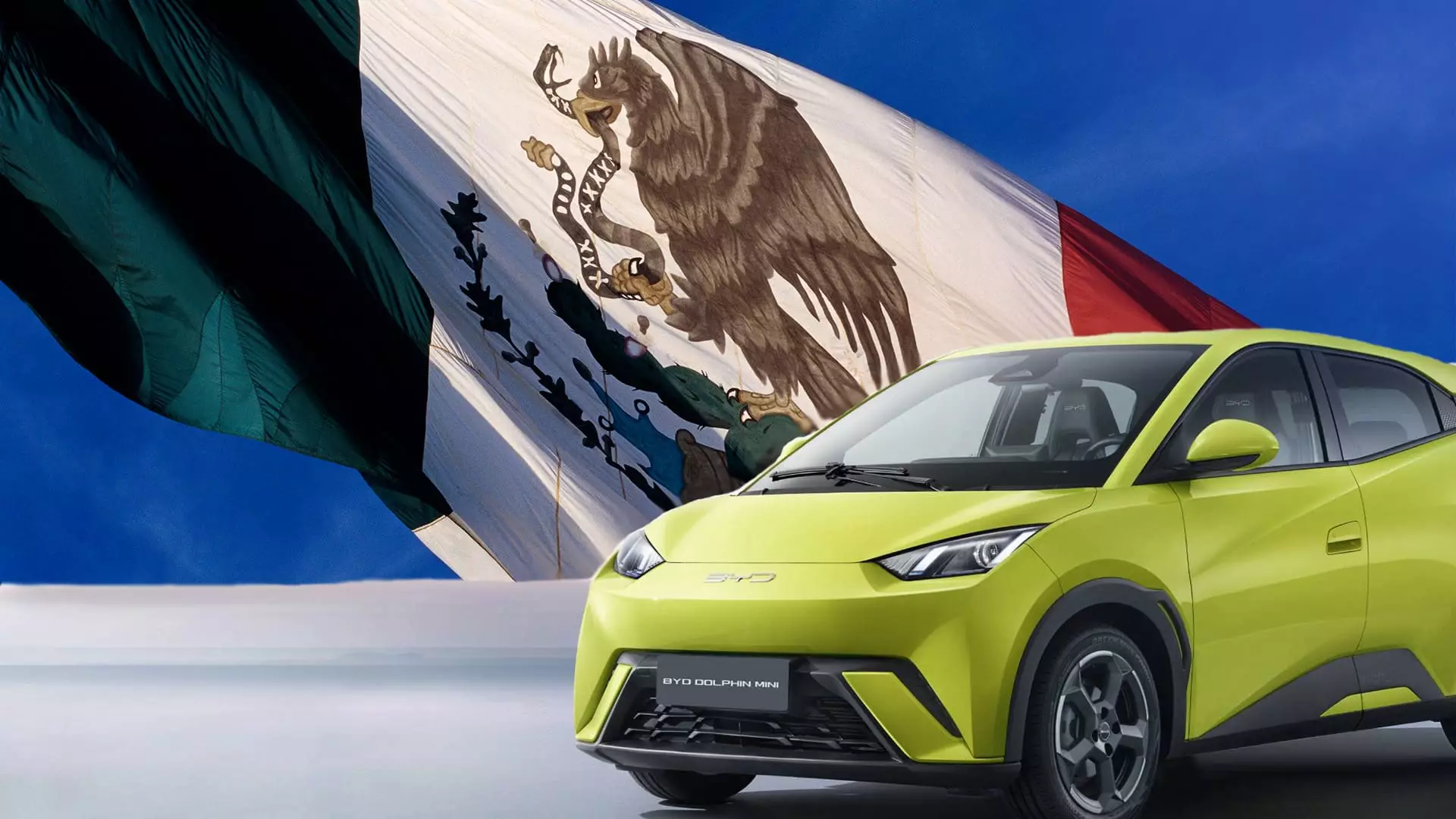Chinese electric vehicle manufacturers have been blocked from the U.S. market due to tariffs, leading them to seek out other opportunities. Mexico has emerged as a prime location for these high-tech cars, with China becoming the leading car supplier to Mexico last year. The Mexican market has been receptive to Chinese EVs, with customers being drawn in by affordable price tags. Brands like BYD have been able to sell their cars at a fraction of the price of competitors like Tesla, making them an attractive option for Mexican consumers.
In an effort to further establish their presence in North America, Chinese EV makers like BYD have been exploring factory sites in various Mexican states. The potential of setting up manufacturing plants in Mexico presents a significant economic opportunity for the country, with claims that it could create thousands of new jobs. However, U.S. officials are concerned that this move is part of a larger strategy by Chinese automakers to circumvent trade restrictions and gain access to the American market.
The United States-Mexico-Canada Agreement (USMCA) has eliminated tariffs on many goods traded between North American countries, providing a loophole for foreign auto companies. Manufacturers in Canada or Mexico can export goods to the U.S. duty-free if they can prove that the building materials are sourced locally. This arrangement has raised concerns among U.S. lawmakers and auto companies, who fear that Chinese EV makers operating in Mexico could undercut American automakers by offering lower costs.
Meeting the requirements of the USMCA poses a challenge for Chinese EV makers looking to gain a foothold in the American market. The potential threat they pose to American automakers has prompted President Joe Biden to announce a 100% tariff on Chinese EVs. The U.S. is in the process of scaling up its own EV industry, and protecting this burgeoning sector is seen as crucial for its growth. The delicate balance between protecting domestic industries and fostering international trade relationships has put pressure on Mexico to navigate this complex situation.
Mexico finds itself in a challenging position, caught between maintaining its relationship with the U.S. and welcoming Chinese investment. The risk of potentially alienating either partner is a delicate balancing act for the Mexican government. As Chinese EV makers continue to expand their presence in Mexico, the country must carefully navigate the competing interests at play to ensure a stable and prosperous automotive industry.


Leave a Reply